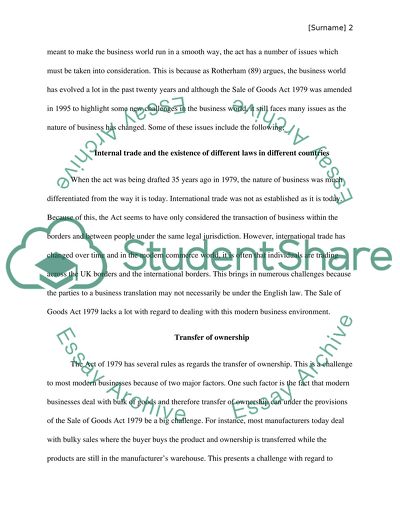Cite this document
(“Do the provisions of the Sale of Goods Act 1979 on the passing of Essay”, n.d.)
Do the provisions of the Sale of Goods Act 1979 on the passing of Essay. Retrieved from https://studentshare.org/law/1639871-do-the-provisions-of-the-sale-of-goods-act-1979-on-the-passing-of-property-and-risk-and-their-effects-make-sense-today
Do the provisions of the Sale of Goods Act 1979 on the passing of Essay. Retrieved from https://studentshare.org/law/1639871-do-the-provisions-of-the-sale-of-goods-act-1979-on-the-passing-of-property-and-risk-and-their-effects-make-sense-today
(Do the Provisions of the Sale of Goods Act 1979 on the Passing of Essay)
Do the Provisions of the Sale of Goods Act 1979 on the Passing of Essay. https://studentshare.org/law/1639871-do-the-provisions-of-the-sale-of-goods-act-1979-on-the-passing-of-property-and-risk-and-their-effects-make-sense-today.
Do the Provisions of the Sale of Goods Act 1979 on the Passing of Essay. https://studentshare.org/law/1639871-do-the-provisions-of-the-sale-of-goods-act-1979-on-the-passing-of-property-and-risk-and-their-effects-make-sense-today.
“Do the Provisions of the Sale of Goods Act 1979 on the Passing of Essay”, n.d. https://studentshare.org/law/1639871-do-the-provisions-of-the-sale-of-goods-act-1979-on-the-passing-of-property-and-risk-and-their-effects-make-sense-today.


